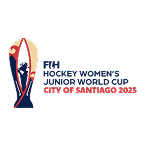
During the Euro Hockey League weekend, a sustainability meeting was held, bringing together key stakeholders with a view to finding important ways to improve sustainability in hockey.
Every year, EuroHockey hosts around 40 tournaments, bringing together players, officials and fans from each corner of the continent.
Each of these events produces a significant environmental footprint which the continental body is working, researching and facilitating ways to reduce that impact.
The meeting was attended by tournament organisers, sponsors, players, interested stakeholders, EuroHockey staff and EuroHockey President Marcos Hofmann to share their knowledge and showcase sustainability initiatives.
Oliver van Nieuwenhuizen was among the speakers and he outlined how his organisation, The Wave, was spearheading efforts in the Netherlands.
A year ago, they were pivotal in getting the ball rolling at the EHL and they expanded their initiatives at the 2024 edition.
“This is about the co-operation between The Wave, Circlarity, EuroHockey, Pinoké and AH&BC Amsterdam, together make this project in a more sustainable way than last year,” van Nieuwenhuizen said.
Last year’s EHL avoided 780kg of CO2; is it a lot? This total gave the event a starting point from which we can judge future events.
The Wave’s mission is to make a world free of plastic waste but initiating a massive movement of awareness and actions from sportspeople.
Circlarity is a key partner in making it happen, encouraging smarter purchasing, more reuse and better recycling with the upshot of less residual waste which ultimately also reduce costs. Their mission is to make all sports’ clubs waste-free within 10 years.
In practice, awareness was created on the big screen during each break in the 20 EHL matches played last weekend.
“We help clubs reduce single-use plastics in a measurable way,” van Nieuwenhuizen added.
“We build awareness about the problem and give clubs the tools to improve, offering alternative solutions and optimising their recycling processes.
“The key message is sustainability through hockey, through clubs, through events, every time trying to do things better than before.
“We see sport and hockey as a fantastic opportunity to bring people together and create awareness and to try make efforts to make each area a bit better.”
A video was shown featuring Dutch international stars Jip Janssen, Elzemiek Zandee and Marijn Veen along with Pinoké coach Jesse Mahieu. They outlined all the ways the event was committing to reduce, reuse and recycle.
Every coffee cup was reusable and came with a deposit scheme. All French fry packaging was wholly compostable while each beer sold came in an RPET cup which had its own collection points and are easily recyclable.
The Hockey Dreams Foundation collected donated hockey sticks to give them a “second life” with donors in with a chance to win places at a Sportways hockey camp.
The media centre, meanwhile, went completely paperless with each member of the press using online resources rather than printed match sheets.
On a wider scale, EuroHockey Commercial Manager Jokko de Wit spoke about the importance and economies of scale required to organise large events such as the 2025 EuroHockey Championships in Mönchengladbach.
The particular focus is on the logistical side of things, to produce efficiencies in the delivery of an event servicing over 70,000 people, requiring many vehicles and even more moving parts.
Further thought was given by Nikon’s Marius Merten who presented about the development of AI cameras and their part in the puzzle for smaller events
They are working to produce broadcast quality footage through unmanned cameras with remote production, bringing the knock-on effect of reduced travel and costs.
“Whatever you do with sustainability, you need a business case to make it affordable and encourage change,” Merten added of the purpose.
#IDSDP2024

























